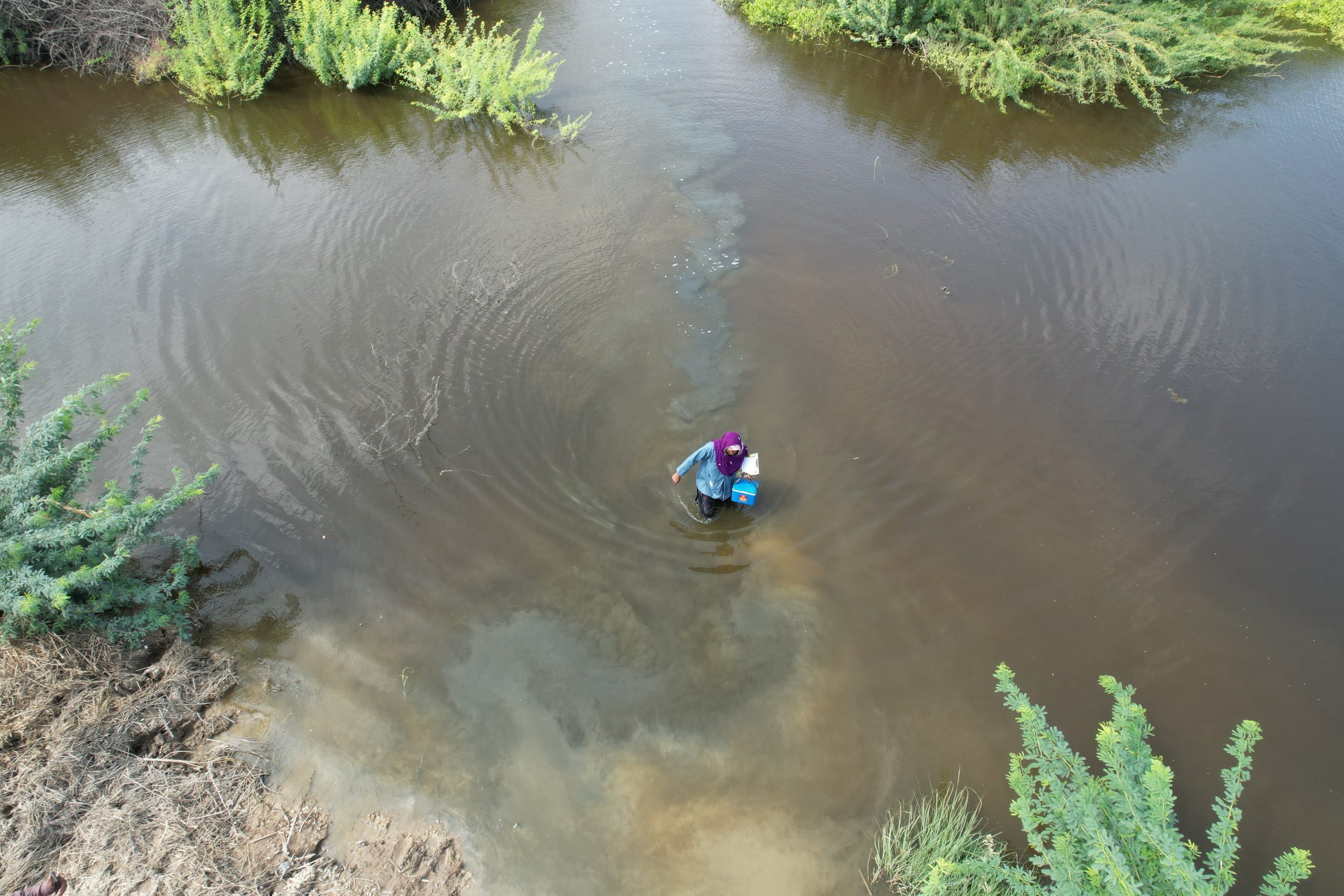Pakistan has been rated highest among the countries most vulnerable to the effects of climate change, despite being responsible for less than 1% of global carbon emissions.
Delegations from Qatar Charity are anticipated to provide aid to individuals in need in various nations, including Lebanon and Pakistan. The charity’s goal is to decrease the suffering of vulnerable people, and help them with their winter necessities such as providing them with shelter, food, fuel and health supplies.
Refugee camps in Lebanon
Qatar Charity is distributing aid to disadvantaged families and refugees in the Lebanese camps of Arsal, Beqaa and Akkar as they face the bitter cold, rain, and snow.
The assistance is provided through their winter “Warm Hearts” campaign.
The assistance consists of food packages, winter necessities like warm clothing, blankets, mattresses, heaters and fuel, as well as strengthening the infrastructure of Akkar camp, and repairing more than 200 tents.
As a result of the difficult conditions that refugees, internally displaced people (IDPs) and low-income families are facing this winter, Qatar Charity is urging benefactors to contribute to and support these convoys in order to increase the number of beneficiaries.
Nearly half a million refugees, IDPs, and underprivileged families receive aid from 250 Qatar Relief convoys spread across the region, including Lebanon, Turkiye, Pakistan, Jordan, Syria and Yemen, according to Khalid Abdulla Alyafei, Director of the Emergency Relief Department at Qatar Charity.
In Lebanon, a small nation of five million people, there are reportedly roughly 1.5 million Syrian refugees. The poorest and northernmost province of Lebanon, Akkar, borders Syria and is home to tens of thousands of refugees who have fled the country’s 11-year crisis.
More than 15,000 Syrian refugees are living in Arsal refugee camps, located in the Lebanese town on the border with Syria.
Aid in Pakistan
Relief continues to be delivered by Qatar Charity to those in Pakistan’s Sindh province’s Dadu area who have been impacted by the floods.
Some 500 tents and 800 food baskets were distributed to the afflicted people as part of this assistance.
“We are very grateful and happy with the assistance that was provided to our remote region in Sindh province, which is one of the largest areas affected by the floods. We appreciate the efforts of the donors in the State of Qatar and the efforts of Qatar Charity to distribute this valuable aid,” said the Assistant Commissioner of Dadu Region, Yassin Abbasi.
More than 500 people have benefited from urgent relief offered by Qatar Charity, which included the distribution of food baskets and tents to those affected by the floods in Pakistan in numerous areas in Balochistan. On the Pakistan-Afghanistan border, an estimated 9,000 Afghan refugees also benefited from this assistance.
Millions of people have been affected by the severe floods and landslides brought on by Pakistan’s monsoon season of 2022. All four provinces in the country were impacted, alongside 15% of the total population. According to Human Rights Watch, the floods demonstrate the urgency of addressing climate change.
‘Climate change and colonial lines’
The floods have prompted many to speak out on the issues of climate change and the major role countries play in exacerbating the dooming process.
“Climate change is a global justice issue. Rich countries like our own pump out massive levels of carbon emissions, while poor countries like Pakistan have to pay for it. With their crops, their homes, their lives,” Mehdi Hassan said on Twitter for MSNBC.

Although it is responsible for just less than 1% of global carbon emissions, Pakistan is currently the foremost country battling with the climate crisis.
Since 1959, Pakistan has been contributing 0.4% to the world’s historic greenhouse gas emissions. On a global level, the United States accounts for 21.5% while China is responsible for 16.5% and EU countries make up 15%.
“Climate breakdown is playing out along colonial lines,” an expert wrote on Twitter.







